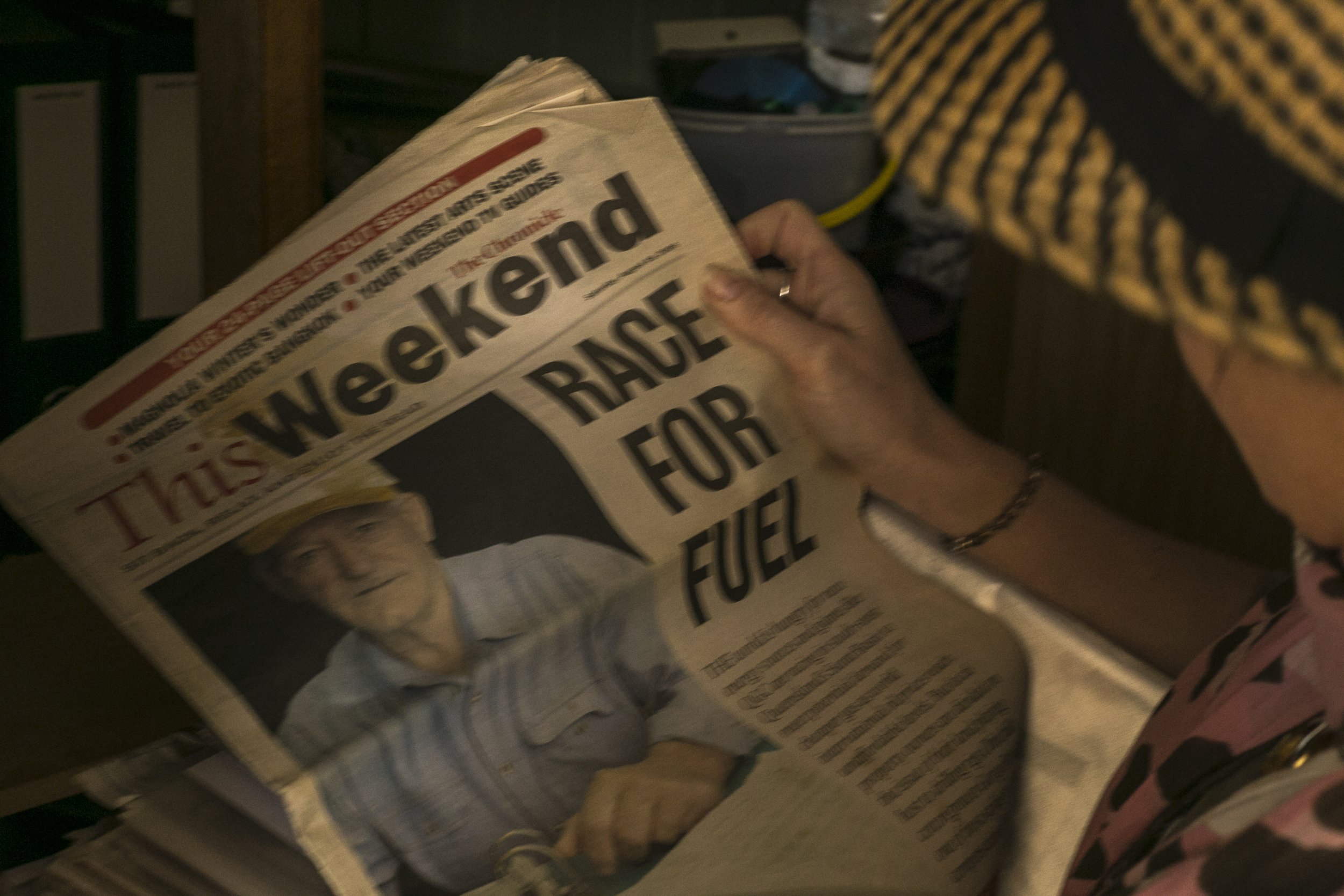A chinchilla resident once described the Chinchilla district as a sacrifice zone, the Government willing to risk the livelihood of local farmers to extract the profitable gas. The Australian Government controls the right to minerals beneath the Earth’s surface and can sell the rights of these minerals to large overseas and local companies such as Link Energy, Origin, Arrow and QCG to extract them. Without proper education and support of their rights, the situation leaves farmers, like the Bender family, open to bullying, intimidation and corruption.
For the Bender family, their lives changed in 2005 when the Coal Seam Gas (CSG) companies first started to invade their small town. George Bender, Pam’s late husband, spent the next decade fighting for the rights to his land against multiple companies. He witnessed firsthand the tragedy unfolding around him and fought to protect the land, water and air from the damage that this industry had and was continuing to cause. He dedicated the last years of his life to standing up for his family and community. He wanted to protect the legacy his family had created and keep the CSG companies off his land and away from his family’s livelihood. It wasn’t until one company gave him an ultimatum that would end with his land being contaminated that he felt the full weight of the industry and the reality of what he would have to sacrifice.
After a long battle against these CSG companies using intimidation and bulling, he couldn’t take it any longer. In the words of his daughter, Helen Bender; “George Bender died from a broken heart”.
After the passing of her husband, Pam Bender took charge of 5700 acres of hope spread across Chinchilla with help from three of her sons; Neil, Brian and Tony. Pam hopes to retire one day soon but is unsure if this is possible without the support of her husband during her ongoing battle to protect the land she loves.
Pam’s daughter, Helen explained to me how the CSG industry is kept hidden under four layers of silence:
1. Legal silence
Government legislation allows the industry to remain silent when it comes to matters such as: CSG companies extracting unregulated, free water from the basin when farmers are unable to withdraw water without having a license. Partial emission monitoring environmental approvals without consideration for the damage waste products are doing to the environment. Ongoing silence about the chemicals used in the fracking process and giving companies the right to clear as much land as they desire – including Aboriginal heritage listed land.
2. Government departments
Federal and state departments such as Environmental Heritage Protection, Department of Health and the Department of Natural Resources remain silent on both the environmental and health impacts caused by CSG. There have been locally recorded instances of radioactive rainwater, methane seeps found in the Condamine River, human and livestock health issues/contamination, the denial of the impacts on the ecosystem and avoiding honest economic studies of health impacts.
3. Confidentiality agreements
Often confidentiality clauses which include buyouts of individuals who the industry sees as a threat to their progress and silence agreements must be signed by landholders.
4. Media silence
The mainstream media makes it difficult for landholders to report and discuss CSG issues and to have a voice.
2018 screen shot of CSG boreholes and wells in the Chinchilla region. https://qldglobe.information.qld.gov.au/























